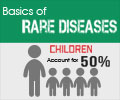
"It was thought that these two types of polycythemia would need treatments targeting different biochemical pathways," says William Kim, MD, one of the study authors and a member of UNC Lineberger Comprehensive Cancer Center. Kim is an assistant professor of Medicine and Genetics at UNC-Chapel Hill.
"We found that – despite their different origins – both types of disease display activation of JAK2. This is exciting because there are JAK2 inhibitors in late stage clinical trials that look promising for patients with JAK2 mutant polycythemia. Our work in laboratory models shows that inhibition of JAK2 is an effective strategy for both types of the disease. Under normal circumstances, the small number of people with a Chuvash VHL mutation would make this type of polycythemia an orphan disease. There are simply not enough patients to make the development of a targeted treatment worthwhile for pharmaceutical companies," he added.
The study results were published earlier this week in the journal Nature Medicine.
Kim cautions that, while the JAK2 inhibitors look very promising in laboratory models of Chuvash polycythemia, they have not yet been tested in humans.
Advertisement










